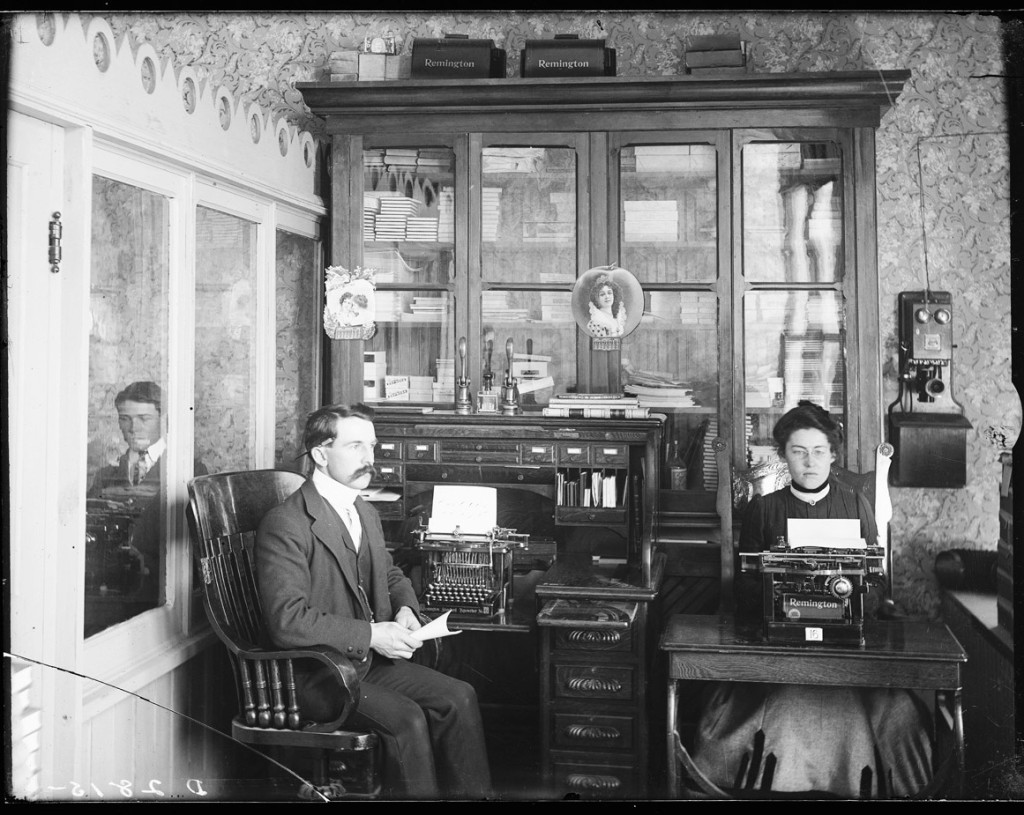 Solomon D. Butcher’s photograph depicted C. W. Roush, principal of the Broken Bow Business College, and his stenographer, Mable Holcomb, both with typewriters. NSHS RG2608-002815
Solomon D. Butcher’s photograph depicted C. W. Roush, principal of the Broken Bow Business College, and his stenographer, Mable Holcomb, both with typewriters. NSHS RG2608-002815
With the advent of the typewriter in the late 1800s, women came forward to apply for and receive employment as typists, eventually replacing male clerical workers. Some acquired the new skill by enrolling in a business school that specialized in teaching commercial courses. The Omaha Daily Bee on November 11, 1889, published an interview with a representative “Beauty at the Key-Board,” who discussed wages, working conditions, and matrimonial prospects of Omaha’s “lady typewriters.” (The word then signified the machine’s operator rather than the machine.)
Asked about the number of female typists in Omaha in 1889 and their average wage, Beauty said: “I should say that there are not far from three hundred. And what do we earn? Oh, I really couldn’t begin to tell you. It depends upon the ability of the operator, . . . Some girls that I know of are working for as low as $6 per week . . . . There are three or four in Omaha who receive as high as $30 per week, . . . It depends, as I have said, upon the ability.” Typing speed was also discussed. Forty words per minute was considered an acceptable rate, with sixty words, “a lively pace.”
Asked to compare male and female typists, Beauty replied: “As compared with gentlemen, well, the sterner sex, I believe, hold the records for the most rapid work, and, owing to the difference in physical construction, are able to do a greater amount of work when it comes to a ‘pinch.’ But I think as a rule that girls are to be relied upon.” And she insisted that on the job women were as discreet as men. “The saying that women cannot keep a secret doesn’t seem to apply in the case of typewriter girls, for I know that I hold several valuable state secrets that would make splendid items for newspapers that I wouldn’t give away for anything.”
Beauty noted bluntly: “Of course we are good-looking the most of us. . . . I am not egotistical when I say that one must be fair to look upon to succeed in an office. . . . Are the most of us single? Well, I should say! Of course we are! What a question! When one of us gets married we expect that our liege lords will provide for us, and that there will be no necessity for us to work. Of course if hubby should die we could collect his insurance and go to work again, and our avocation would be quite handy.” – Patricia C. Gaster, Assistant Editor / Publications



